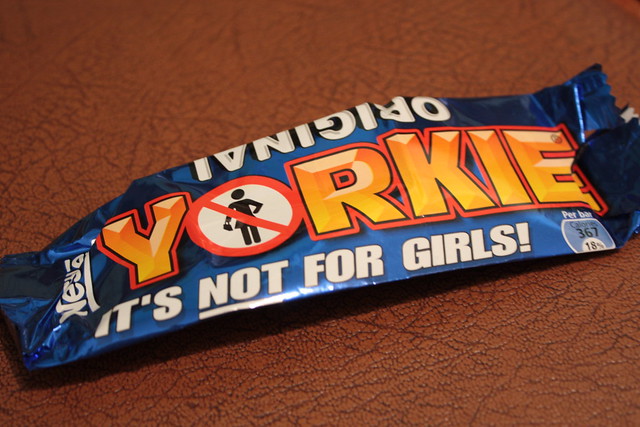
So Nigella Lawson says that 'baking is a feminist act'. Speaking at the Hay Literary Festival on Sunday, the author, television presenter and go-to reference for the (not-so) 'new domesticity' told of the importance of celebrating the most traditionally feminine of culinary arts in an age where the blokey celebrity chef is king.
It's now over a decade since the publication of 'How to Be A Domestic Goddess', Nigella's book about baking and comfort food - and her first television show, Nigella Bites, which means that it's almost as long that journalists, social commentators and assorted navel-gazers have been musing on whether or not she symbolizes the 'ultimate woman' and whether we should aspire to have her body - and not forgetting, of course, the big question of how we 'should' be feeling about domesticity.
The beginning of Nigella's reign as queen of indulgent cooking saw cakes emerging as something fashionable as opposed to mere sustenance. Fast forward past the end of the Noughties and I don't think anyone, least of all me, wants to see another earnest feature using the phrases 'recessionista', 'cupcakes as a lifestyle choice' and '50s housewife nostalgia'. Which is why I'm going to shut up about that already.
I do, however, think that all this is part of the point that Nigella was trying to make when she said, of 'How To Be A Domestic Goddess':
"I think it's a very important feminist tract in its own right, and I'm not being entirely ironic. Baking is the less applauded of the cooking arts, whereas restaurants are a male province to be celebrated. There's something intrinsically misogynistic about decrying a tradition because it has always been female."
Nigella has had a great deal of success with her books and her broadcasting, but as she says, it's the more male-orientated areas of culinary skill which are seen as important and world-changing. Restaurants staffed by drama-loving men who cause scandal and tabloid intrigue. Foodie television shows and the careers, family life and social action projects of well-loved manly role-models like Jamie Oliver and Hugh Fearnley-Whittingstall.
It may now be socially acceptable for men to be into cooking, but it's still more likely for them to exercise their culinary skill for special occasions, barbecues and big 'show-off' meals while women often solider on with 'day to day' cooking, family meals and the sort of stuff that foodies couldn't care less about. And, of course, baking. Coverage of baking in recent years has tended to focus on it as 'on-trend', a bourgeois 'lifestyle choice' or the way overprivileged 'yummy mummies' engage in one-upmanship at the school fete.
I think we're all familiar with the denigration of activities and attributes considered 'traditionally female' - hence the sneering tone when some people say 'women's work' and the ultimate insult of acting or being 'like a girl'. So Nigella's absolutely right when she talks about the misogyny of criticizing 'traditional' cooking. What she's saying is "Go on - reclaim baking - take it back from those who see you as a 'silly woman' for enjoying it".
This isn't a new concept and over the years it's been applied to not just baking, but also activities like knitting and pretty much every other form of crafting, sticking two fingers up not only at those who see them as of lesser importance than 'masculine' pursuits, but also at right-wingers who spend half their lives bemoaning the way us feminists hate traditionally feminine hobbies and attributes as well as men, children, bras and fun.
The ways we spend out lives, whether that's in the office or climbing the corporate ladder or cleaning or childrearing, absolutely should be equally valued. It's about respecting those things which in the past have been devalued and derided - yes, even in the 'golden age' before the 1960s. Remember all those adverts for appliances and products which were 'so simple - even a woman can use it'?
I think the last time I baked a cake was at the age of 13 when it was required of me for Home Ec class, so maybe I am the archetypal right-winger's nightmare (no babies yet, puts off doing the ironing as long as possible). But that's not to say I think it's a pointlessly silly exercise and I definitely agree with chef and chocolatier Lagusta Yearwood when she says that Nigella's right:
"The great gift feminism can give to the mainstream world is precisely this: that the qualities we associate almost exclusively with women will, if allowed to flourish and given adequate respect, vastly improve society across all levels."
This post originally appeared at BitchBuzz. Image via dklimke's Flickr.








